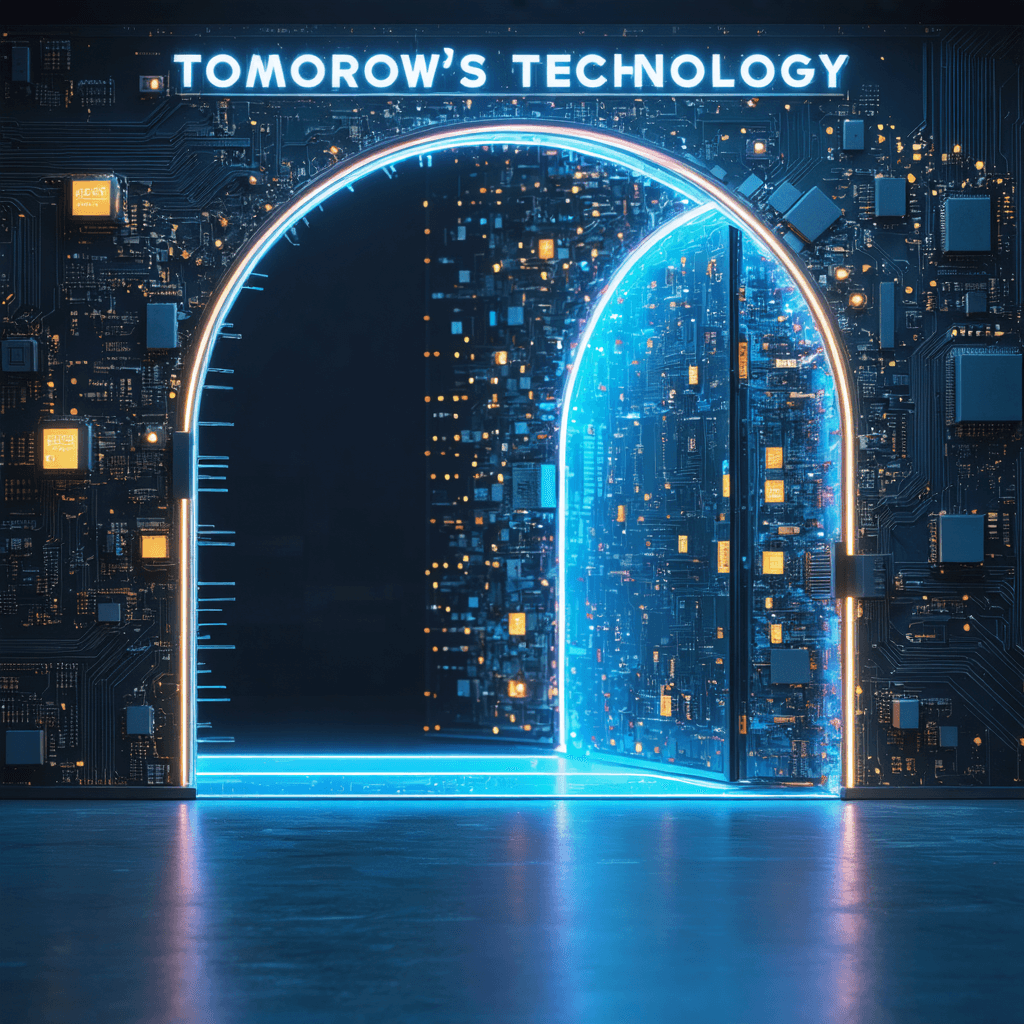AI and Machine Learning: Your Gateway to Tomorrow's Technology Today
In today's rapidly evolving digital landscape, Artificial Intelligence (AI) and Machine Learning (ML) have transcended from mere buzzwords to transformative forces reshaping our world. As we navigate through 2025, these technologies continue to revolutionize industries, enhance human capabilities, and create unprecedented opportunities for innovation.
The Current State of AI and ML
The AI market has experienced exponential growth, with recent statistics showing global AI revenue reaching $900 billion by 2025. This massive expansion reflects the technology's increasing maturity and widespread adoption across sectors. From healthcare diagnostics to autonomous vehicles, AI and ML are no longer future concepts but present-day realities.
Key Applications Transforming Industries
1. Healthcare Revolution
Modern healthcare has witnessed a paradigm shift through AI implementation. Machine learning algorithms now assist in:
- Early disease detection with 95% accuracy
- Personalized treatment plans based on genetic markers
- Drug discovery acceleration, reducing development time by 60%
- Predictive healthcare analytics for preventive medicine
2. Financial Services Innovation
The financial sector has embraced AI-driven solutions for:
- Fraud detection and prevention
- Algorithmic trading strategies
- Personalized banking experiences
- Risk assessment and management
3. Manufacturing Evolution
Smart manufacturing powered by AI has led to:
- Predictive maintenance reducing downtime by 50%
- Quality control automation with 99.9% accuracy
- Supply chain optimization
- Energy consumption reduction
The Technology Behind the Revolution
Deep Learning Breakthroughs
Recent advances in deep learning architectures have enabled systems to process and analyze data with unprecedented accuracy. Neural networks now handle complex tasks such as:
- Natural language processing
- Computer vision
- Speech recognition
- Pattern detection in big data
Edge Computing Integration
The marriage of AI with edge computing has brought intelligence closer to data sources, enabling:
- Real-time processing
- Enhanced privacy protection
- Reduced latency
- Lower bandwidth requirements
Practical Applications for Businesses
Customer Experience Enhancement
AI-powered solutions have revolutionized customer interaction through:
- Intelligent chatbots handling 70% of customer queries
- Personalized recommendation engines increasing sales by 35%
- Predictive customer behavior analysis
- Automated content generation
Operational Efficiency
Organizations implementing AI solutions report:
- 25% reduction in operational costs
- 35% improvement in productivity
- 40% decrease in human error
- 50% faster decision-making processes
The Future Landscape
Emerging Trends
- Autonomous Systems The development of fully autonomous systems continues to accelerate, with applications in:
- Transportation
- Manufacturing
- Agriculture
- Space exploration
- Hybrid AI The combination of different AI approaches is creating more robust and versatile systems:
- Symbolic AI with machine learning
- Quantum computing integration
- Biological computing interfaces
- Ethical AI Development As AI systems become more prevalent, focus increases on:
- Responsible AI development
- Transparency in algorithms
- Bias elimination
- Privacy protection
Skills for the AI Era
Essential Competencies
To thrive in the AI-driven future, professionals should develop:
- Programming proficiency (Python, R, Julia)
- Data analysis capabilities
- Algorithm understanding
- Domain expertise
- Ethical consideration awareness
Learning Pathways
The journey to AI mastery includes:
- Foundational mathematics and statistics
- Machine learning fundamentals
- Deep learning specializations
- Practical project experience
- Continuous learning and adaptation
Implementation Strategies
Getting Started
Organizations looking to implement AI solutions should:
- Identify specific business challenges
- Assess data availability and quality
- Start with pilot projects
- Scale successful implementations
- Monitor and optimize performance
Best Practices
Successful AI implementation requires:
- Clear objectives and metrics
- Quality data management
- Cross-functional collaboration
- Regular performance evaluation
- Continuous improvement cycles
The Role of Human Expertise
Despite AI's capabilities, human expertise remains crucial for:
- Strategic decision-making
- Creative problem-solving
- Ethical oversight
- Emotional intelligence
- Complex reasoning
Looking Ahead
As we progress through 2025 and beyond, AI and ML continue to evolve at an unprecedented pace. The organizations and individuals who embrace these technologies while maintaining a balance with human expertise will be best positioned for success in the digital future.
Your Next Steps
The journey into AI and ML begins with understanding and education. Whether you're a business leader, technology professional, or curious learner, the time to engage with these transformative technologies is now. 01TEK offers comprehensive courses and resources designed to help you navigate the AI landscape and build the skills needed for tomorrow's technology-driven world.
Ready to begin your AI journey? Explore our cutting-edge courses and resources at 01TEK. From foundational concepts to advanced applications, we provide the knowledge and tools you need to succeed in the AI-driven future. Visit our learning platform today and take the first step toward mastering tomorrow's technology.
Would you like me to give you a formula for success? It’s quite simple, really: Double your rate of failure. You are thinking of failure as the enemy of success. But it isn’t at all. You can be discouraged by failure or you can learn from it, so go ahead and make mistakes. Make all you can. Because remember that’s where you will find success.
Thomas J. Watson, businessman



